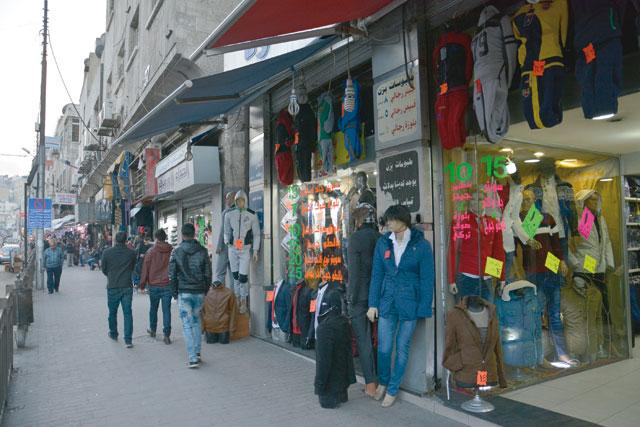You are here
Traditional retail withers under online shopping boom
By Maria Weldali - Sep 29,2020 - Last updated at Sep 29,2020
AMMAN — The rise of online shopping in Jordan amid the COVID-19 pandemic has triggered concerns among local retailers and industry representatives, especially after the lockdown and the late reopening of the stores, according to President of the Textile and Readymade Clothes Syndicate Muneer Deyeh.
“The growth of e-commerce stores has created an unlevel playing field for traditional retail traders by offering better shopping deals that put local vendors out of business,” Deyeh told The Jordan Times over the phone on Sunday.
“Bold decisions and swift measures” should be taken to ease the financial burden on the sector, Deyeh said, noting that consumers are getting deep discounts and predatory prices because online retailers do not pay 50-60 per cent taxes and fees on clothes, unlike traditional store owners.
“Everything is moving online and shopping is no exception, but to have a fair competition, online stores should be licensed and follow a certain package of measures and directives,” the syndicate president said.
The costs of running a traditional retail store are considerably greater than online stores. Whereas online retailers do not bear the costs of renting a commercial establishment, staff salaries, store maintenance and fixtures, electricity, as well as, the taxes and fees, in addition to the operational expenses.
“August and September were the hardest months for us this year, and ever actually. For the first time we are seeing days with absolutely zero sales at many stores. There is no liquidity and the challenges of paying operational costs and salaries have become a massive pressure on the employers,” Deyeh said.
With social media platforms and simple parcel delivery services, almost everyone has been able to open an online store, which negatively affects the Kingdom’s clothing stores, “causing a postal boom during a global downturn”, Deyeh said.
He added that in 2019, parcel packages worth JD45 million entered the Kingdom. This amount is expected to increase if the problem is not immediately addressed.
The sector employs more than 52,000 workers in almost 10,800 stores across the Kingdom.
Related Articles
AMMAN — The Textile and Readymade Clothes Syndicate has called on the government to take “bold decisions” to strengthen the sector in light
AMMAN — The lifting of Friday lockdown has boosted foot traffic in clothing stores, resulting in a “limited” improvement in sales, according
AMMAN — Amid the ongoing coronavirus crisis, secondhand and outlet stores gain popularity as more Jordanians turn away from retail stores.Pr
















